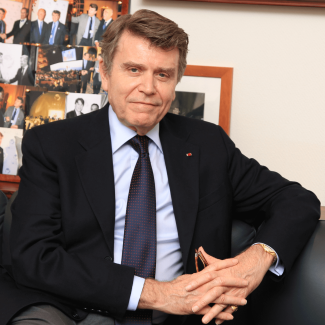
Dubai is a place where success comes quickly. The emirate has comfortably turned itself into a major business centre, freeing itself from alienating dependence on oil and diversifying its economy into financial services, tourism, new technology and media. Its success breaks with the image of an Arab world incapable of modernising itself and developing. Muslim Dubai has managed to achieve a harmony between different religions, modern practices and membership of a globalised world, though with many shortcomings that tend to weaken its political system.Despite these, Dubai has become a concept, an idea and perhaps a model that can be exported. It is a dream for many Arabs.
Political scientists, journalists, economists andthose involved in its economy describe and discuss here the way the city-state has changed, how it works and how other Arabs see it. Their tracing of its journey from ancient trading port to new global city and vision of a post-modern state is a rare look at what is often called "the Dubai model'.
Contributors: Habib Al-Mulla, Saeed Al-Muntafiq, Christophe Ayad,Joseph Bahout, Naoufel Brahimi El-Mili, Hanane Cherkaoui, Fatiha Dazi-Héni, Amar Drissi, Mustapha El Alaoui, Bernard El-Ghoul, Aboubakr Jamai, Abdulhamid Juma, Laurence Louër, and Omar Saghi.
Edited by Amar Drissi, Executive Vice-President of Strategic Communications Group, and Thierry de Montbrial, President of the Institut français des relations internationales (Ifri).
Co-ordinated by Khadija Mohsen-Finan, Senior Research Fellow at Ifri.






